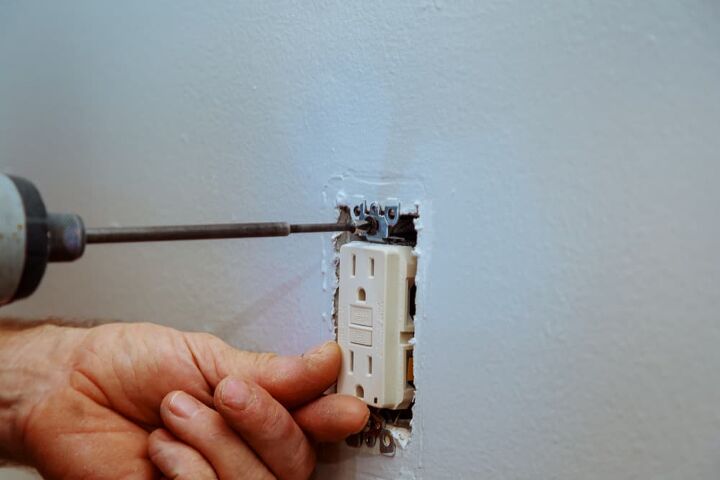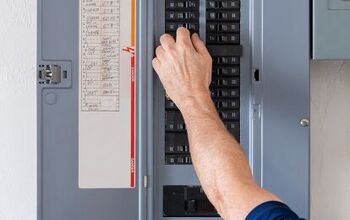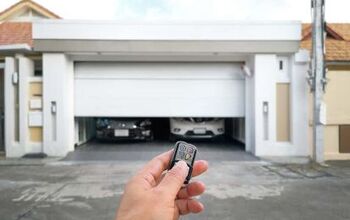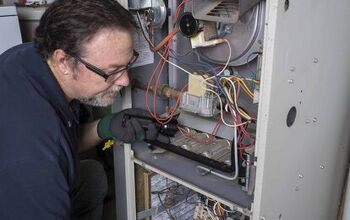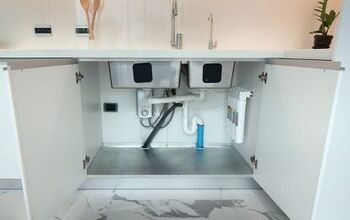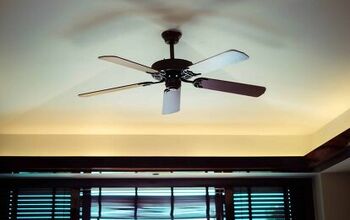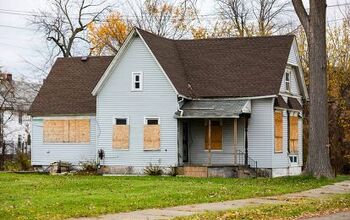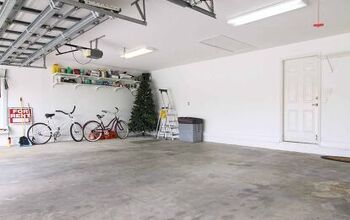How Much Does It Cost To Rewire A House?

House rewiring is one of the heftiest projects a homeowner can expect. Nonetheless, it is a necessary one to keep your house safe and compliant.
A house with outdated wiring could also suffer a reduced market value. Your buyer may even rebuttal your price by urging for an overall rewire. Therefore, it is best to rewire your house before it is too late. How much does it cost to rewire a house?
The average cost to rewire a house is $5,500 at $2.65 per square foot. Electricians charge an average of $69 per hour in labor costs to rewire a house. Homeowners spend $1.06 per foot of copper wire, $0.50 per switch and outlet, $0.38 for outlet covers, and $1,180 for 100 amp service.
Do You Need to Hire an Electrician?
Get free, zero-commitment quotes from pro contractors near you.

Is It Time For A Rewiring?
First thing first, is it time for a rewiring? Or perhaps your electric circuits could survive for another five to ten years with some minor improvements and maintenances?
As a general rule, it’s better safe than sorry when it comes to your utilities. The best way is to conduct regular inspections to ensure no significant hazards are underlying in your home.
Signs Your House Needs Rewiring
Luckily, many apparent signs will tell you that your house needs rewiring. We’ve picked five of the most common symptoms to look for:
- Flickering or dimming lights, or burnt-out lightbulbs
- Fuses blowing regularly
- Sparkles from outlets or discolored outlets and switches
- Burnt smells in your house
- Power surges, or if you get shocked when touching a cord
Another reason to rewire your house when the existing circuits no longer meet your needs. For example, if you have extension cords running all over the place, you might as well invest in a rewiring. Running too many cables can bring both fire hazards and tripping threats.
Benefits Of Rewiring A House
There are many benefits of rewiring a house, the first being safety. If you’re getting shocked or sparkles are coming out of your outlets, rewiring will eliminate that fire and life hazard. It also eliminates all underlying electrical problems.
The second benefit is a whole-house rewiring saves you money in the long run. That’s because you get a better rate for home insurance if your home has new wirings. You’d also face less trouble filing wiring-related claims if you’ve recently rewired your house.
Approximate Cost To Rewire A House
Most homeowners pay somewhere around $2,200 to rewire an average home. Of course, if you have a gigantic house, you naturally pay more for a whole-house rewiring. Meanwhile, small jobs like changing or adding an outlet may cost less than $200.
The chart below gives you the average electrical wiring cost
Electrical Wiring Cost National Average
| National Average | $2,115 |
| Minimum | $125 |
| Maximum | $11,400 |
| Average Range For A Regular Home | $790 to $3,617 |
Cost To Rewire A House Per Square Foot
A more accurate way to calculate your rewiring cost is to go by the price per square foot. On average, electrical wiring costs $2 to $4 per square foot, with wiring alone being $6 to $8 per linear foot.
This table shows you the low, average, and high-end electrical wiring installation cost by square footage.
Average Wiring Cost Per Sqft
| Low-End | $1.56 |
| Average | $2.65 |
| High-End | $3.75 |
If you calculate project cost by surface area, remember that most installation projects are charged every 100 sqft because that’s what an average electrician can cover in an hour. Therefore, the per-sqft price may fluctuate, depending on your contractor’s hourly rate.
Labor Costs
So, let’s talk a little more about labor costs. Most electricians charge $40 to $99 an hour for general labor. And as we’ve mentioned above, it takes about an hour to cover 100 square feet. That should give you a rough idea of how much rewiring your home will cost.
Also, an electrician’s hourly charges vary by their seniority. Just because a master electrician works faster and more efficiently than an apprentice doesn’t mean he’d charge less. Quite the opposite, a higher experience level may significantly increase their hourly rate.
Cost Of Additional Materials
Most electricians include materials in the estimate by default. Generally speaking, you shouldn’t try to purchase your materials because contractors get a better deal from their suppliers. For interior appliances like ceiling fans or light fixtures, you are more than welcome to provide the ones you like.
The table below gives you a brief idea of how much the materials cost:
Rewiring Material Price Chart
| Material Name | Average Price |
| 100 Amp Service | $1,180 |
| 200 Amp Service | $1,950 |
| Copper Wire | $0.30-$1.83 per foot depending on types and purposes |
| Basic Outlets and Switches | $0.50 each |
| Outlet Plate covers | $0.38 each |
If you have specific requirements, your materials will be more expensive. For example, a 15-amp outlet with USB charging options cost at least $20 each, whereas a traditional one only costs $0.50.
As a general rule, any fixtures compatible with a smart home system costs much more.
Cost To Rewire A House By Type
Another way to look at rewiring cost is by looking at different types of work needed. A few ways to categorize a rewiring job include:
- By rewiring methods
- By home size
- By bedrooms, if you are doing a partial rewiring
Let’s go through these one-by-one.
Different Ways Of Rewiring
There are two ways to rewire a house. The first one requires the electrician to tear into the wall, remove the old wiring, and put in new wiring altogether.
The second method preserves your home’s integrity by fishing wires through walls with rods or fish tapes. You might need to make small openings here and there, but overall, this method costs much less damage to your structure.
Method 1: Opening Walls And Running Wires
If you are opening up walls to get wires in, be ready to pay $4,500 to $9,000 for an average-sized home. If you have a larger house, say, over 2,500 square feet, you’d be looking at $12,000 to $20,000.
If your house has a crawl space or floor joists, your cost would be significantly lower. For example, an average 1,200 square feet home with joists and accessible areas would only cost $3,000 to $5,000. That’s because they allow wires to go through without tearing down and rebuilding drywalls.
Your electrician will include the cost to open and rebuild drywalls in their quote.
Method 2: Fishing Wires Without Breaking Walls
This method keeps your old wiring in place. Therefore, it’s a lot more affordable. It also requires less drywall work because your electrician would mostly be sending wires behind the wall through a small opening.
In this case, you’d be looking closer to the average cost of $4,000 or less to rewire your home.
By Home Size
Like all large construction projects, electricians often offer a bundle discount if you have a large home. Therefore, don’t only calculate your rewiring cost by using the per square foot price.
The table below shows you how much it cost to rewire a house by size.
Whole-House Rewire Cost By Home Size
| Home Size | Average Cost |
| 1,200 | $1,900 – $4,500 |
| 1,500 | $2,300 – $5,600 |
| 2,500 | $3,900 – $9,400 |
| 3,000 | $4,800 – $11,400 |
By Bedrooms
If you find the prices above intimidating, see if you can do a partial-house rewiring instead of a whole-house one. In most cases, bedrooms are the first place to enjoy a rewiring.
On average, it costs about $190 to rewire each 120-sqft bedroom. There isn’t much bundle discount when it comes to partial rewiring, so you can simply multiply the unit cost by the number of bedrooms you have for a total estimate.
If you need to update your electrical panel, add at least another $1,500 to your estimate.
Cost To Rewire A Basement
Many homeowners start with an old, unfinished basement. A few years in, they end up with a beautiful, modern basement with one big problem, outdated wirings.
Therefore, basement rewiring is more popular and necessary than you’d think. For an average basement that’s 1,000 sqft large, your wiring cost is approximately $800 to $1,500. The size of your electrical subpanel and the number of outlets needed are the main cost factors behind these numbers.
Of course, be ready to pay more if you want to tear out whatever old wirings are down there. However, it’s smart to leave the old ones and install modern electrical circuits altogether.
Additional House Rewiring Costs
Like all home improvement projects, whole-house rewiring comes with a few additional costs as well.
Adding Outlets And Switches
In general, the more outlets and switches you want, the more expensive your total cost will be. Besides the cost to purchase said outlets and switches, your main expense lies in adding the new electrical circuit needed.
Each electrical circuit will cost you about $100 to $150. Therefore, the more outlets and switches you can fit into one room, the better a deal you get.
Upgrading Electrical Panels
Regardless of your requirements, by default, a whole-house rewiring will enhance your service capacity. Most older homes come with 60 or 100-amp services, whereas modern wirings come with 150 and 200-amp services. Today, most modern homes need a 200-amp panel. However, you will be paying extra if you also want to upgrade your subpanels.
In general, it costs about $1,100 to upgrade an electrical service panel. The table below will give you a better idea of the actual costs.
Service Panel Upgrade Costs
| Fixture | Average Cost Each |
| 100-amps Service Panel | $850 to $1,100 |
| 200-amps Service Panel | $1,300 to $1,600 |
| Electrical Box | $1,200 to $2,500 |
Adding Electricity To A New Garage
Similarly, if you want to wire or rewire a garage, the first question to ask is if you need a garage subpanel. In most cases, a 60-amp service panel is more than enough to power your garage unless you need the space for some heavy-duty work.
That aside, garage electrical wiring can cost you $1,000 to over $4,000. However, it still sits on the low-end of electrical rewiring costs. Also, it’s possible to do garage wiring on your own if you have basic construction knowledge. In that case, all you need to do is invest in some proper tools.
If you have an attached garage, your wiring cost will only be $1,000 to $2,500.
Wiring A Shed, Sunroom, Or Screened-In Porch
More homeowners are building sunrooms, sheds, and screened-in porches nowadays. These fixtures are affordable and boost the aesthetics of a home. Naturally, you’d want your fixtures wired so you can run HVAC and other fixtures and appliances when necessary. So how much does it cost to wire a detached or attached addition?
You may be surprised to find out that the cost to wire a shed or a detached addition begins as low as $900. Most of the price goes into bringing the electrical line to the addition.
Of course, the price will go up as your needs go up. If you want your sunroom to have full HVAC, lights, and multiple outlets, you will more likely be looking at paying $1,500 or above.
Financing Options For House Rewiring
Like we mentioned in the beginning, a whole-house rewiring can be costly. Therefore, many homeowners are intimidated to kickstart the project. In the end, they get hit by property damage caused by an electrical fire, increased insurance rates, and lowered house value.
Thus, we decided to include a financing section in this article and point you in the right direction. There are three major financing options available:
- Personal loans
- Home equity loans
- Home equity line of credit
Each has different pros and cons but can all fund your rewiring project easily.
Get A Personal Loan
A personal loan is the least demanding financing option. It gives you the funds you need, and that cash hits your account in a much shorter time frame than other options.
All you need to qualify for a low-interest personal loan is a solid credit score and your proof of income. You don’t need any collateral, but keep in mind the maximum you can borrow is dependent on your income level.
See If You Qualify For A Home Equity Loan
Home equity loans are also one time loans. In this case, you borrow against what you’ve built up in your property. Home equity loans have a much lower interest rate because you will be using your home as collateral.
For the same reason, the application process may take a bit longer. A good credit score usually helps with getting qualified.
Home Equity Line Of Credit
If you think your rewiring project will run for a long time, a line of credit may be the best option. Same as a home equity loan, a home equity line of credit (or HELOC) also uses your home as collateral.
It works just like a credit card. You borrow, then pay some back, then borrow again until you complete the project, then gradually pay back the rest. A HELOC gives you a lot more breathing room with your finances and a lot less stress. Again a good credit score will help significantly with the approval process.
Do You Need to Hire an Electrician?
Get free, zero-commitment quotes from pro contractors near you.

Related Questions
How much does it cost to rewire a house with plaster walls?
Assuming you are tearing and rebuilding the drywalls, be ready to pay 8,000 to $15,000, depending on the size of your home. If your house is more extensive than 3,000 square feet, you may want to look into the alternative rewiring method that preserves the old wiring structures.
Do I need any permits and licenses?
That depends on your state. Some may ask you to pull a permit before starting the project, and violations could result in hefty fines. If you are not sure about the permit and licensing requirements, check with your HOA for more information.Also, you can leave permitting to your electrician. As contractors, chances are they know more on this topic than you do.
Do I need an inspection before rewiring?
It’s best to have an inspection done, so you know your existing electrical circuits’ conditions. Also, if you are upgrading the main service panel, then an inspection is mandatory.You will also need a “rough-in” inspection if you tore down the drywall for this project.
Can I prep the site myself?
We wouldn’t recommend you do any electrical work by yourself unless you are a certified electrician. There are just too many complicities involved. Plus, if you do anything wrong, it would cost more for your electrician to fix it.
How much does electrical rough-in cost?
A Rough-in alone costs $3,000 to $8,000 for an average 1,200-sqft house.

With a deep passion for content and creative writing, Xiao Faria da Cunha finds a strong sense of accomplishment in creating quality home guides that resonate with homeowners. When not writing, you can find Xiao creating art masterpieces.
More by Xiao Faria Da Cunha



